Introduction
In the evolving landscape of digital commerce, choosing the right e-commerce platform and developer can significantly influence a business's success. Shopware, a leading open-source platform, offers robust and customizable solutions tailored to meet the unique demands of online stores. Its modular architecture ensures flexibility, scalability, and resilience, making it an optimal choice for businesses aiming to stay competitive.
However, leveraging the full potential of Shopware requires the expertise of a skilled developer who can ensure the platform's functionalities are maximized, providing a seamless and efficient user experience. This article delves into the critical aspects of hiring a Shopware developer, offering insights into their expertise, the hiring process, and the key qualities to look for to drive your e-commerce success.
Understanding Shopware and Its Developers
This platform stands out as a robust open-source e-commerce solution, providing businesses with a flexible and scalable option tailored for online stores. Its modular architecture is designed to allow seamless customization and extension of functionalities, making it ideal for meeting unique business needs. Utilizing a robust e-commerce framework is crucial in today's competitive environment, and this platform's architecture guarantees optimal performance and cybersecurity resilience. As highlighted by industry standards, the adoption of a reliable e-commerce system is a critical technical decision, one that can significantly impact a business's ability to adapt to evolving demands.
Employing a proficient programmer for the platform is essential to completely utilize its features. They ensure your e-commerce site is not only functional but also optimized for performance and user experience. This is especially important given the high-engagement nature of online commerce, where speed and efficiency can make a significant difference. Furthermore, the right developer can navigate and coordinate the complexities that come with integrating various components and modules, ensuring a streamlined and effective e-commerce solution.
Industry leaders emphasize the significance of a robust e-commerce structure, noting that platforms of this kind provide the essential adaptability for personalization and smooth integration with external tools. This flexibility is vital for businesses looking to engage customers, improve SEO, and increase conversions. With the continuous evolution of e-commerce trends and technologies, staying ahead with a platform like this can provide a competitive edge, ensuring your online store remains efficient and effective.
Why Hire a Shopware Developer
Hiring a committed platform specialist brings focused expertise and experience to your project. These professionals understand the intricacies of the platform, ensuring your online store operates seamlessly across all devices. Whether customers start shopping on their phone and finish on their laptop, synchronized shopping carts keep the experience consistent. 'Shopware professionals also enhance for speed, utilizing advanced methods to guarantee that your storefront loads swiftly and offers the latest product information.'.
In today's fast-paced e-commerce environment, having a programmer who can implement best practices in design, functionality, and SEO is crucial. They help mitigate risks associated with development challenges, ensuring smooth project execution and timely delivery. For businesses looking to stay competitive, upgrading and maintaining their commerce platform is essential. A committed software engineer not only aligns technical solutions with business goals but also anticipates future requirements, fostering long-term growth and value.
Additionally, the forthcoming 6.6 version offers new functionalities and enhancements, making it even more essential to have a specialist available. By utilizing new technologies and keeping current with trends, an e-commerce specialist enhances your online store capabilities, whether you require help with custom features or general maintenance.
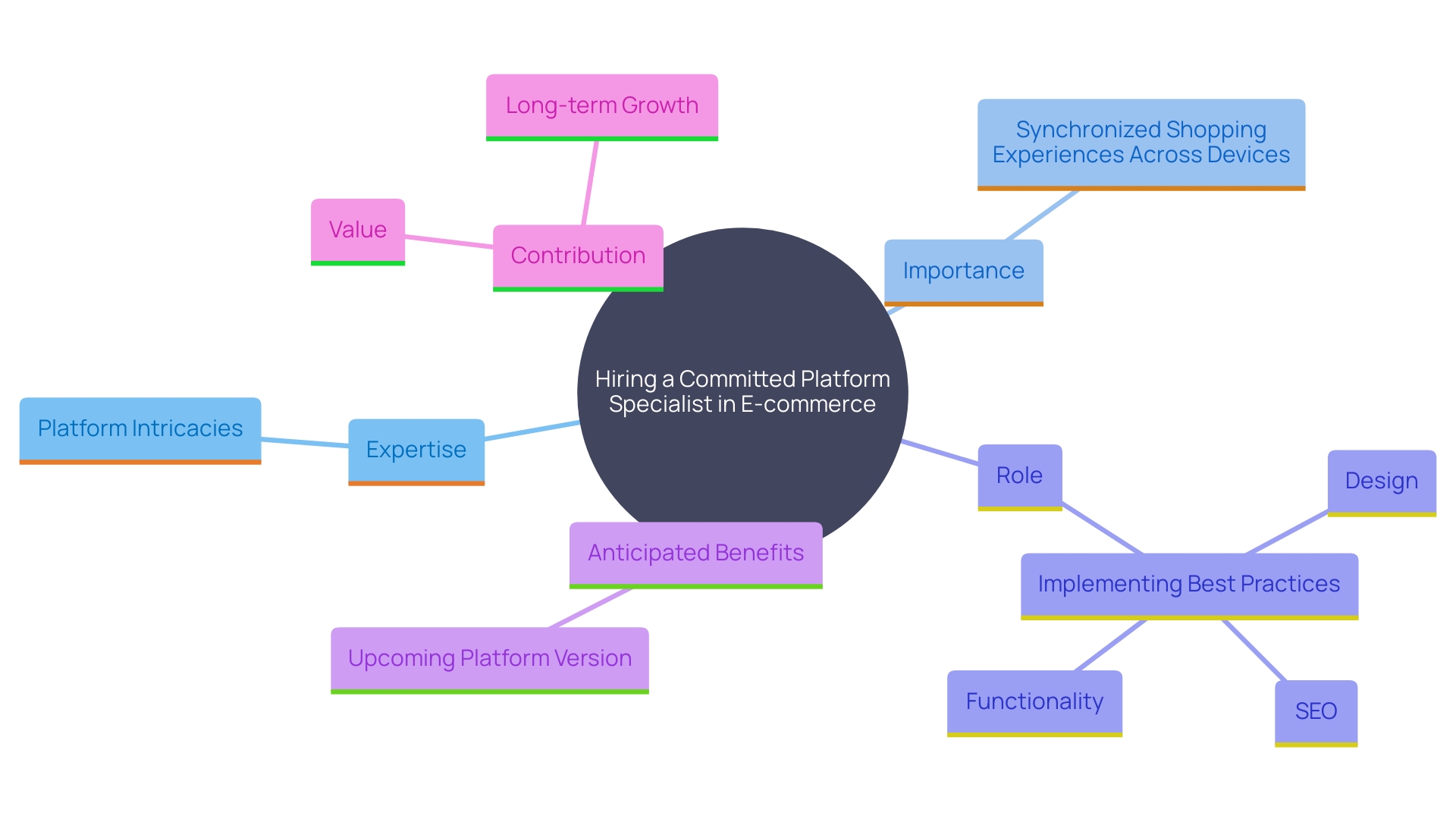
Key Factors to Consider When Hiring a Shopware Developer
When hiring a Software developer, ensuring their alignment with your business goals is crucial. Begin by evaluating their technical proficiency, which includes not only their coding skills but also their understanding of modern software practices like Agile and DevOps. These methodologies are essential for improving productivity and fostering innovation.
Additionally, assess their project management capabilities. Strong time management and prioritization skills are vital, especially when dealing with multiple concurrent requests. An effective programmer should thrive on change and be able to work well both independently and as part of a team. They should also be flexible enough to operate within various organizational structures, whether locally, regionally, or globally.
Furthermore, take into account their problem-solving skills and their method for overcoming challenges related to technology. Developers with a solutions mindset can think outside the box and provide custom-built solutions that meet specific business needs. Outstanding communication and teamwork abilities are also crucial, as these allow individuals to effectively express their ideas and collaborate with stakeholders from various backgrounds.
Real-world examples illustrate the importance of these qualities. For example, Crew Clothing, a UK retailer, utilized technology to obtain insights on profitability and future results, showcasing the importance of having a programmer who can connect technological solutions with business goals. Likewise, individuals who commit time to focused tasks can experience a 50% increase in productivity, as reducing interruptions is essential for high-value work.
By thoroughly assessing these factors, you can form a successful partnership with a developer who not only meets your technical requirements but also drives your business forward.
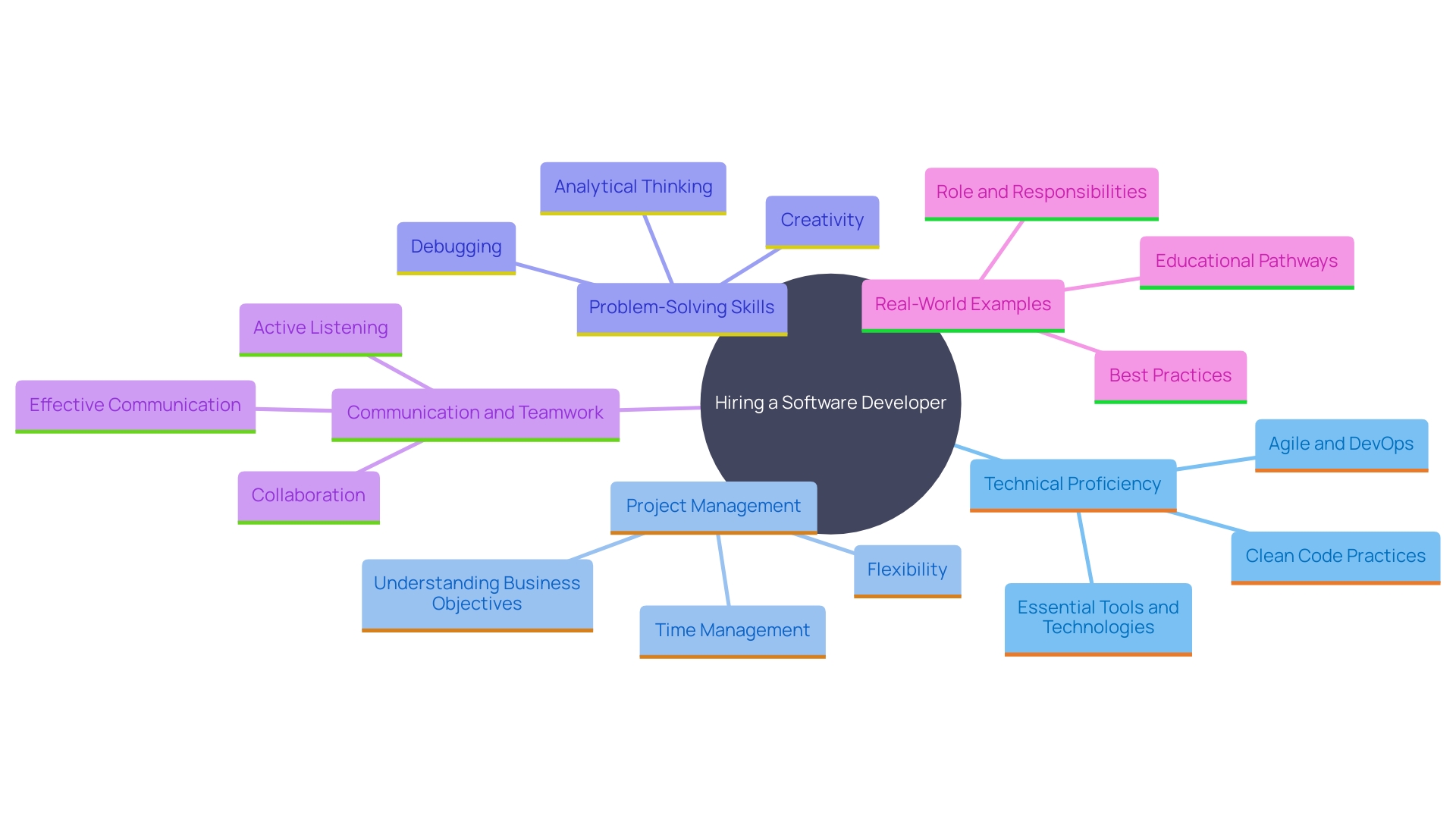
Check for Certification and Experience
When recruiting for e-commerce platform development, prioritize candidates with relevant certifications. Certifications are a strong indicator of a candidate’s understanding of the platform’s features and capabilities and demonstrate a commitment to continuous learning and professional growth. As MichaÅ Kierul, CEO of INTechHouse, notes, “It speaks volumes about their passion, their drive to excel, and their commitment to continuous learning outside their regular work domain.” In cases where multiple applicants have similar qualifications, having certifications can give one candidate an edge, as stated by Aleksa Krstic, CTO at Localizely.
Furthermore, scrutinize their experience in the e-commerce domain. An ideal candidate should have a portfolio showcasing completed Shopware projects tailored to meet diverse market requirements. For example, SmartBuyGlasses, a leading e-commerce eyewear company, has successfully tailored its offerings to meet the needs of customers across various regions by leveraging experienced developers who understand the intricacies of regional markets. This approach not only demonstrates technical expertise but also the ability to adapt solutions to real-world, client-specific challenges.
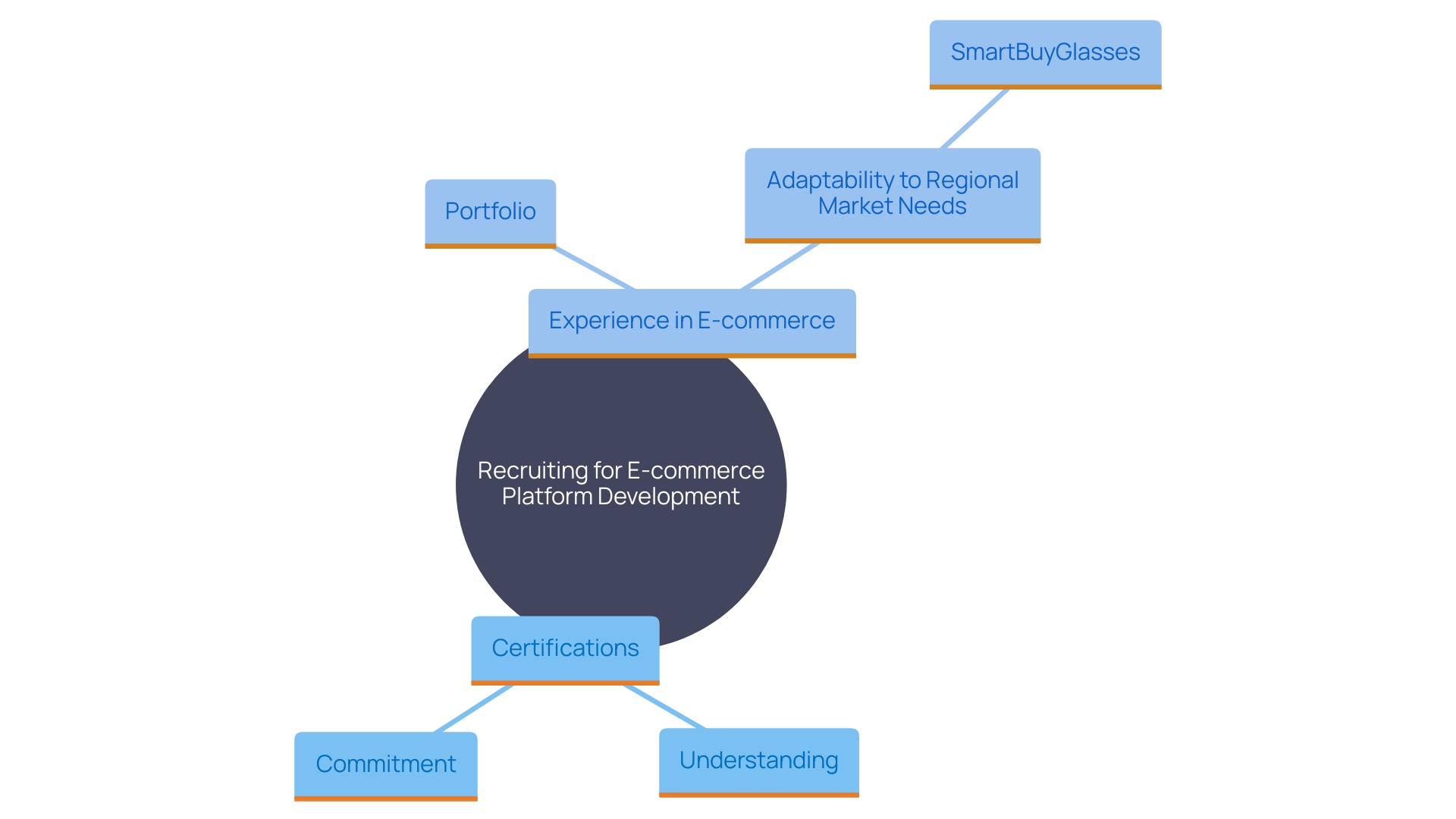
Evaluate Communication Skills
Effective communication is the cornerstone of successful collaboration. Ineffective communication can result in misunderstandings, delays, and problems with software quality, which can greatly affect the results of the work. In a constantly changing work environment, where different teams must coordinate to meet ambitious goals, the ability to communicate clearly and directly is essential not only for success but also for professional growth.
Evaluating a programmer's capacity to express technical ideas clearly and their responsiveness to inquiries is essential. Strong communication skills facilitate better teamwork and help ensure that project requirements are understood and met. As noted in various studies, software development is fundamentally a social activity requiring collaboration among team members. The misconception that software development is a solitary activity focused solely on coding becomes evident when programmers face collaborative situations. Without strong communication skills, even the most talented programmer may find their ideas sidelined or misinterpreted.
Participating actively in team planning meetings is essential. These sessions are key moments to align with others, understand priorities, share ideas, and most importantly, ask questions. This proactive approach helps in avoiding the common issue of teams focusing solely on their objectives without understanding the ripple effect their work can have on other teams. To overcome this, teams need to adopt a mindset of shared responsibility and ensure that everyone involved is aware of how their work ties into the broader objectives of the company.
Moreover, the findings from recent research highlight the importance of considering emotional, workplace, and communication factors when aiming to improve productivity and satisfaction among software engineers. By addressing these issues, organizations can foster a more positive and productive work culture, leading to improved software quality, reduced burnout, and better overall team performance. In this regard, investing in the advancement of technical writing abilities and fostering a culture that appreciates clear communication can yield significant benefits for teams and the overall success of endeavors.
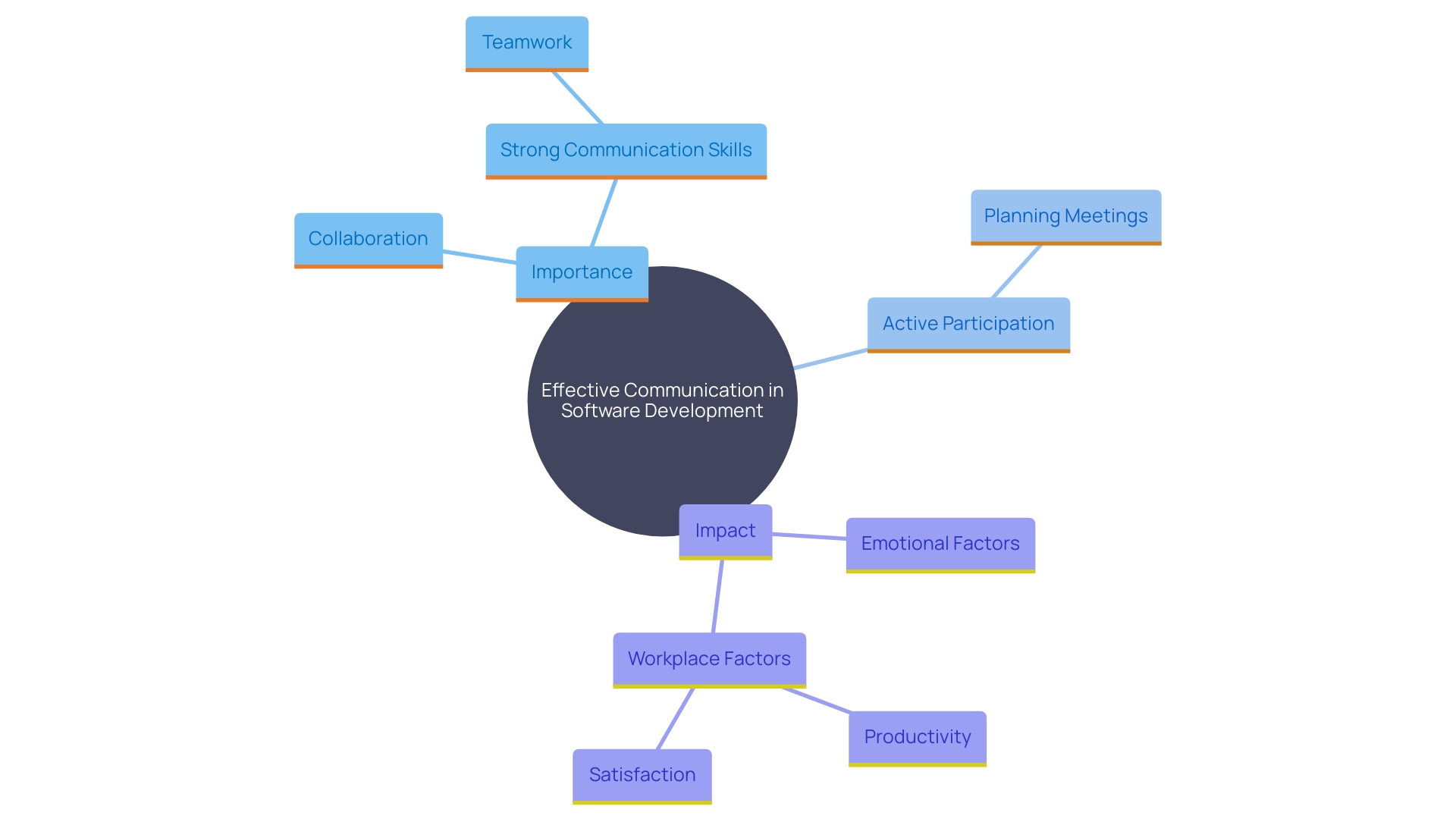
Familiarity with Project Management Tools
An exceptionally talented Shopware specialist should be proficient in utilizing management tools like Jira, Trello, or Asana. These platforms are not only essential for tracking progress and managing tasks but also for ensuring seamless communication and collaboration within the team. Jira, for example, offers strong capabilities for cross-team collaboration, making it perfect for software development initiatives. Its comprehensive history tracking and status updates are critical for maintaining transparency and accountability. Trello and Asana, while also effective, cater to different team needs; Trello's visual approach helps in organizing tasks efficiently, and Asana's user-friendly interface makes it suitable for business and marketing teams. By utilizing these resources, creators can guarantee that tasks are finished promptly and within financial limits, optimizing productivity and results.
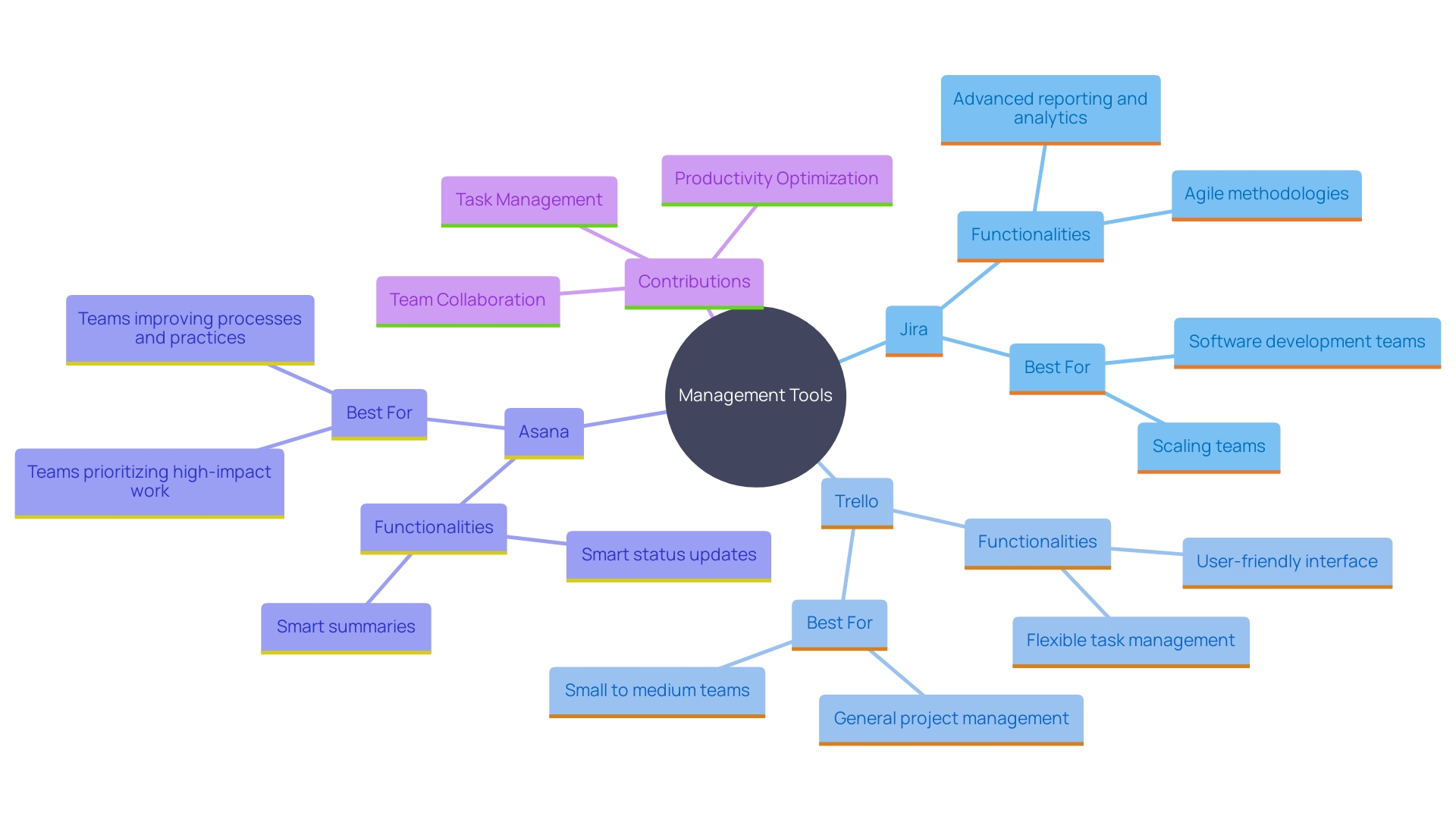
Review Project Portfolio
When reviewing a creator's portfolio, it is crucial to explore their past work to evaluate their experience and the caliber of their endeavors. A comprehensive portfolio should include detailed introductions, such as a personal portfolio page that outlines the individual's skills, work experience, and education. 'Search for emphasized initiatives with concise summaries, visuals, and demonstration links, as this can offer understanding of the creator's practical skills.'.
A comprehensive display, highlighting thorough descriptions of the technology stacks utilized and visual representations, provides a greater insight into the individual's technical proficiency. Additionally, an experience-sharing blog where the creator writes about programming, tech trends, and web development tips can demonstrate their knowledge and thought leadership in the field.
By analyzing portfolios that contain these components, you can assess the individual's flexibility and expertise across different assignments. This comprehensive method guarantees that you choose a programmer who not only fulfills your technical specifications but also possesses a demonstrated history of providing high-quality results in similar settings.
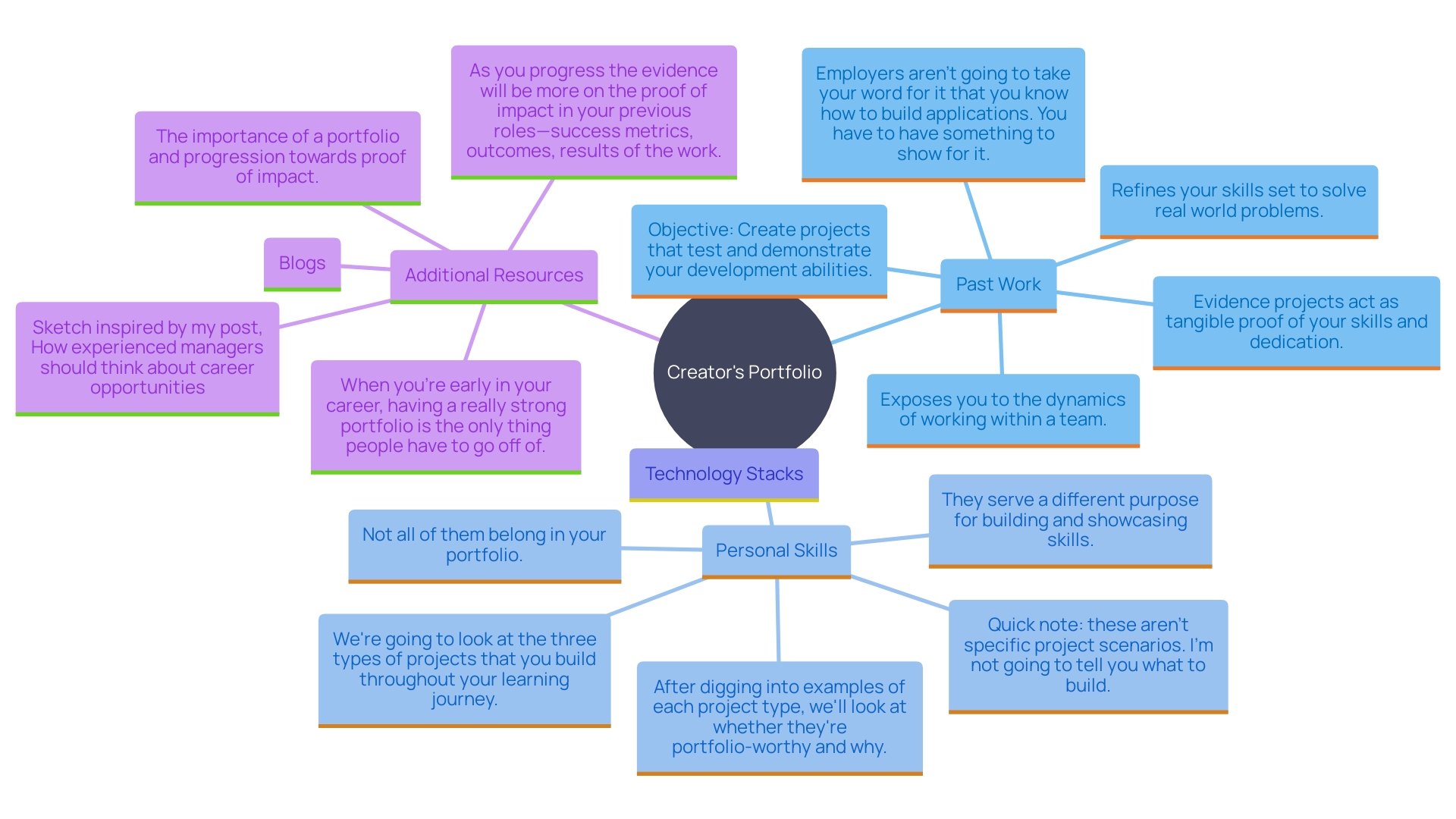
Analyze Client Testimonials
Client testimonials provide valuable insights into a programmer's work ethic, reliability, and ability to meet deadlines. For an in-depth understanding, reach out to previous clients or look for reviews on platforms such as LinkedIn or Upwork. 'Sombra, for instance, has successfully finished over 200 initiatives, demonstrating their proactive approach and commitment to providing data-driven solutions.'. With a team of 300+ experts operating globally and a decade of experience, their focus on client satisfaction and open, honest relationships stands out. These testimonials and reviews can help gauge their reputation and effectiveness in the industry.
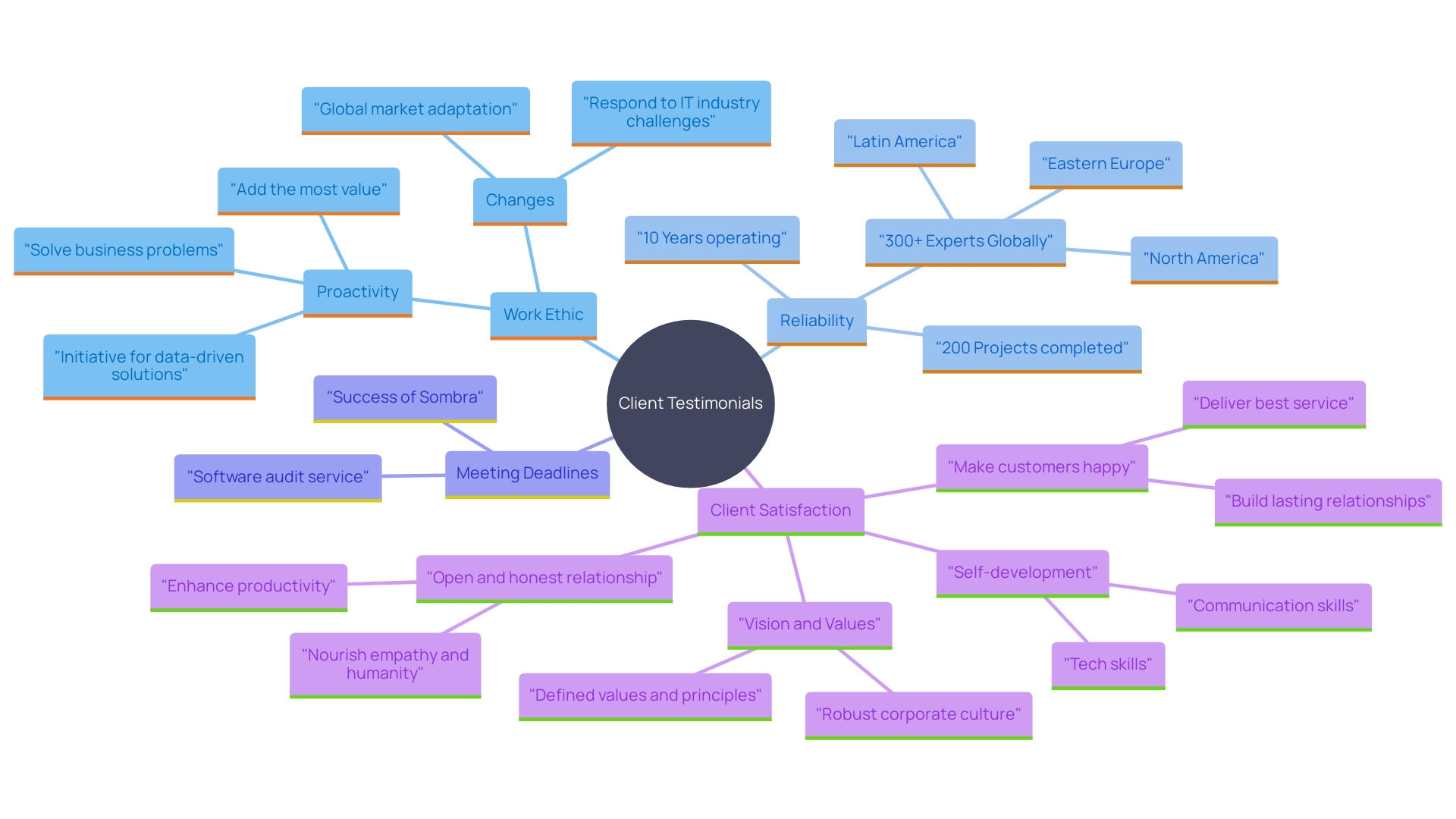
Assess Soft Skills
Beyond technical proficiency, soft skills such as problem-solving, creativity, and adaptability are essential for those in the field. These attributes significantly enhance their ability to tackle challenges and devise innovative solutions throughout a project's lifecycle. According to research, individuals who effectively utilize soft skills can better manage workplace stressors and enhance their job satisfaction and productivity. For instance, a study revealed that programmers who understand their code deeply feel 42% more productive. Moreover, initiatives like the engineering design course in Canada emphasize the importance of soft skills by providing realistic design experiences, fostering industry culture, and honing communication skills. As companies increasingly acknowledge the importance of these competencies, many provide complimentary training programs to assist individuals in improving their soft skills, guaranteeing a workforce capable of managing the complexities of contemporary software development.
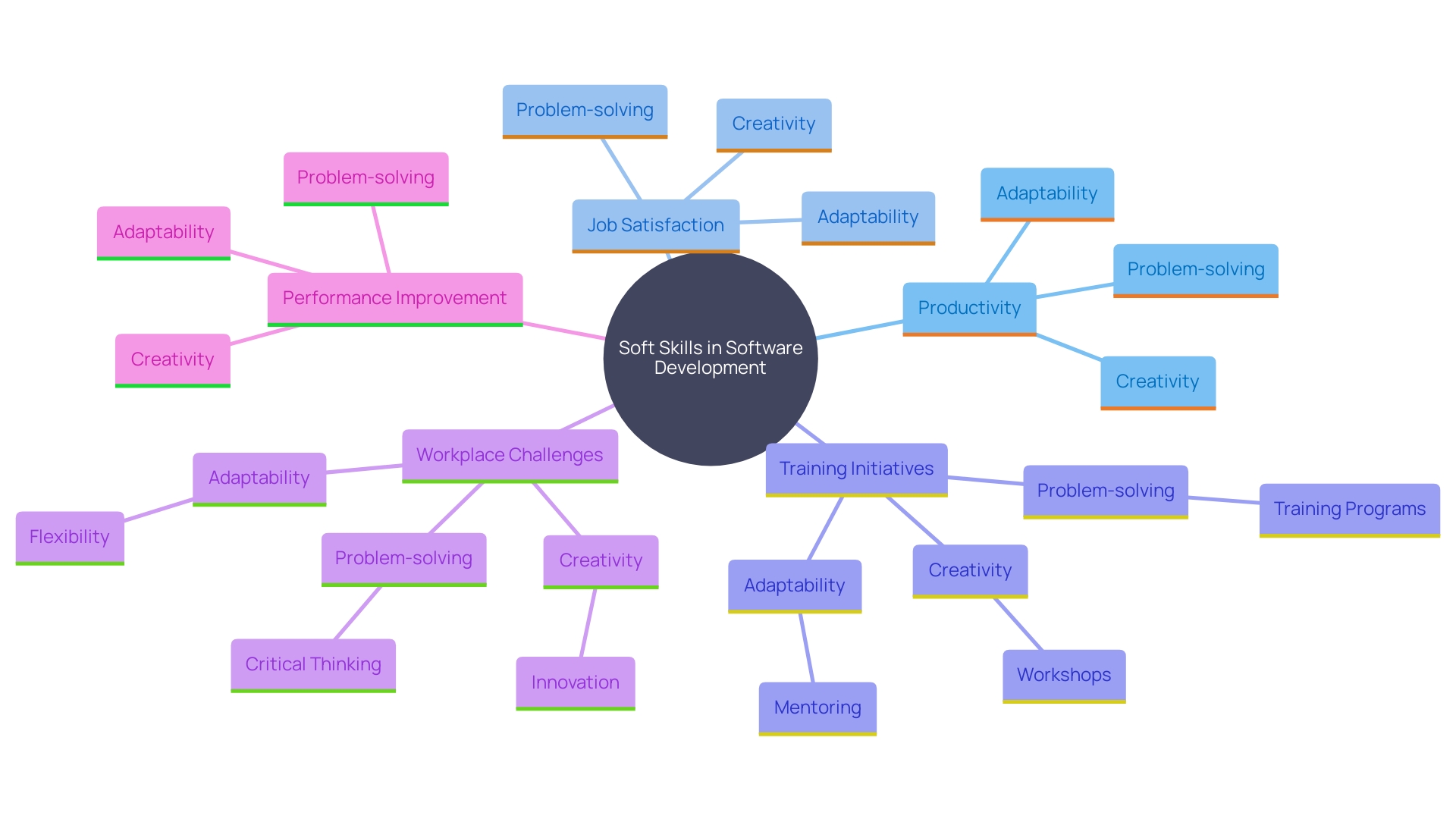
Consider Development Approach and Post-Deployment Support
Comprehending a developer's method to software creation is essential for guaranteeing success and long-term maintainability. Investigate their preferred methodologies, such as Agile or Waterfall, and their capabilities in testing and quality assurance. Agile development, for example, is widely adopted due to its flexibility and iterative nature, allowing teams to quickly adjust to changing requirements and deliver functional software in short cycles. As highlighted by CACI International's integration of Agile practices, this approach has proven effective in various industries, including federal systems, by enhancing operational efficiency and security.
Effective Agile testing demands a strategic and collaborative approach, with QA engineers playing a pivotal role in delivering high-quality software that exceeds customer expectations. Automated testing and monitoring are integral in DevOps environments, ensuring code quality and rapid issue resolution. These practices lead to more adaptive and efficient software development processes, ultimately improving both speed and quality.
Furthermore, post-deployment assistance is crucial for sustaining software performance and resolving any issues that occur after the system goes live. Regular software upgrades, performance monitoring, and system updates are necessary to keep the application in optimal condition. Employing tools that track and measure Agile performance, as observed in extensive U.S. government implementations, can offer transparent insights into progress and areas for enhancement. This end-to-end support ensures that the software continues to meet user needs and operates reliably over time.
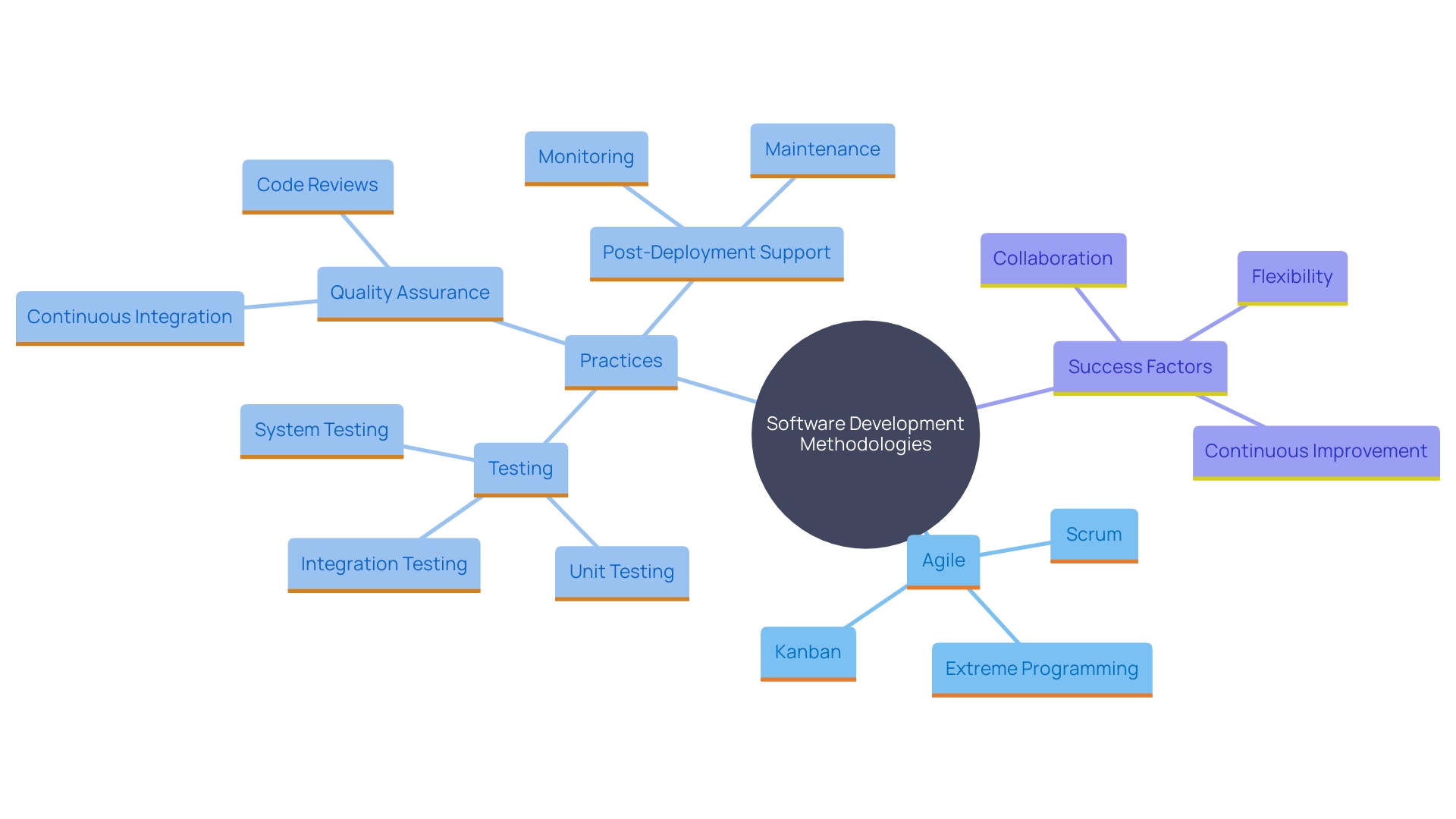
Understand the Cost Structure
Clarify the creator's pricing model at the outset to prevent unexpected costs later. Regardless of whether they charge by the hour or have set fees for their work, it is essential to make sure the expenses align with your budget and that you understand what their services entail. This understanding helps avoid hidden fees and licensing costs, which are common in software development. Evaluating the total cost of ownership (TCO) and potential scalability costs can aid in making a well-informed decision. According to industry experts, assessing these factors helps in allocating resources efficiently and focusing on creating value rather than duplicating existing technologies.
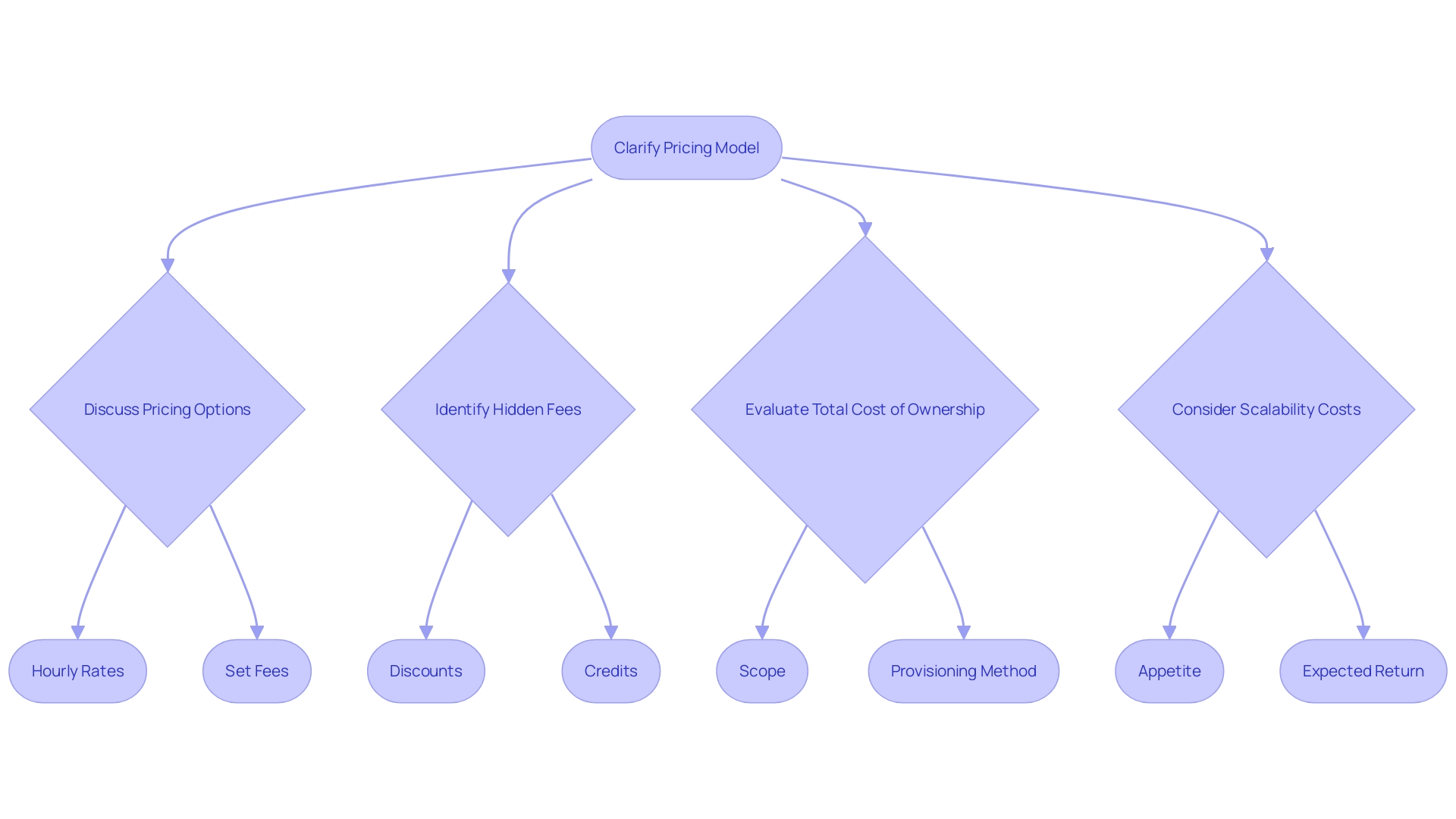
Importance of Continuous Learning and Adaptability
The digital landscape is continually evolving, especially in the e-commerce sector. It is essential that your Shopware developer is dedicated to ongoing education and staying abreast of the latest trends and technologies. This dedication ensures that your project incorporates the most innovative solutions, enhancing its effectiveness and competitiveness.
For instance, firms such as Nets have customized their portfolios to satisfy various market needs by adopting innovative methods of showcasing data efficiently. Karmela Peček, an Instructional Designer at eWyse Agency, highlighted the importance of transforming technical information into engaging formats to motivate user exploration. Similarly, LEDVANCE's approach to localizing product and application training into multiple languages underscores the importance of adapting to technological advancements to meet the needs of a global audience.
A recent report by IDC, in partnership with Shopify, found that 67% of merchants are considering changing their commerce platform within the next three years, prioritizing ease of use and timely implementation. However, the report also noted that a lack of digital skills and technology scalability are significant roadblocks. This highlights the importance for platform creators to consistently enhance their skillsets to efficiently adopt and oversee new technologies.
By ensuring your e-commerce platform specialist is dedicated to ongoing education, you prepare your online store to utilize innovative solutions, ultimately fostering success and expansion.
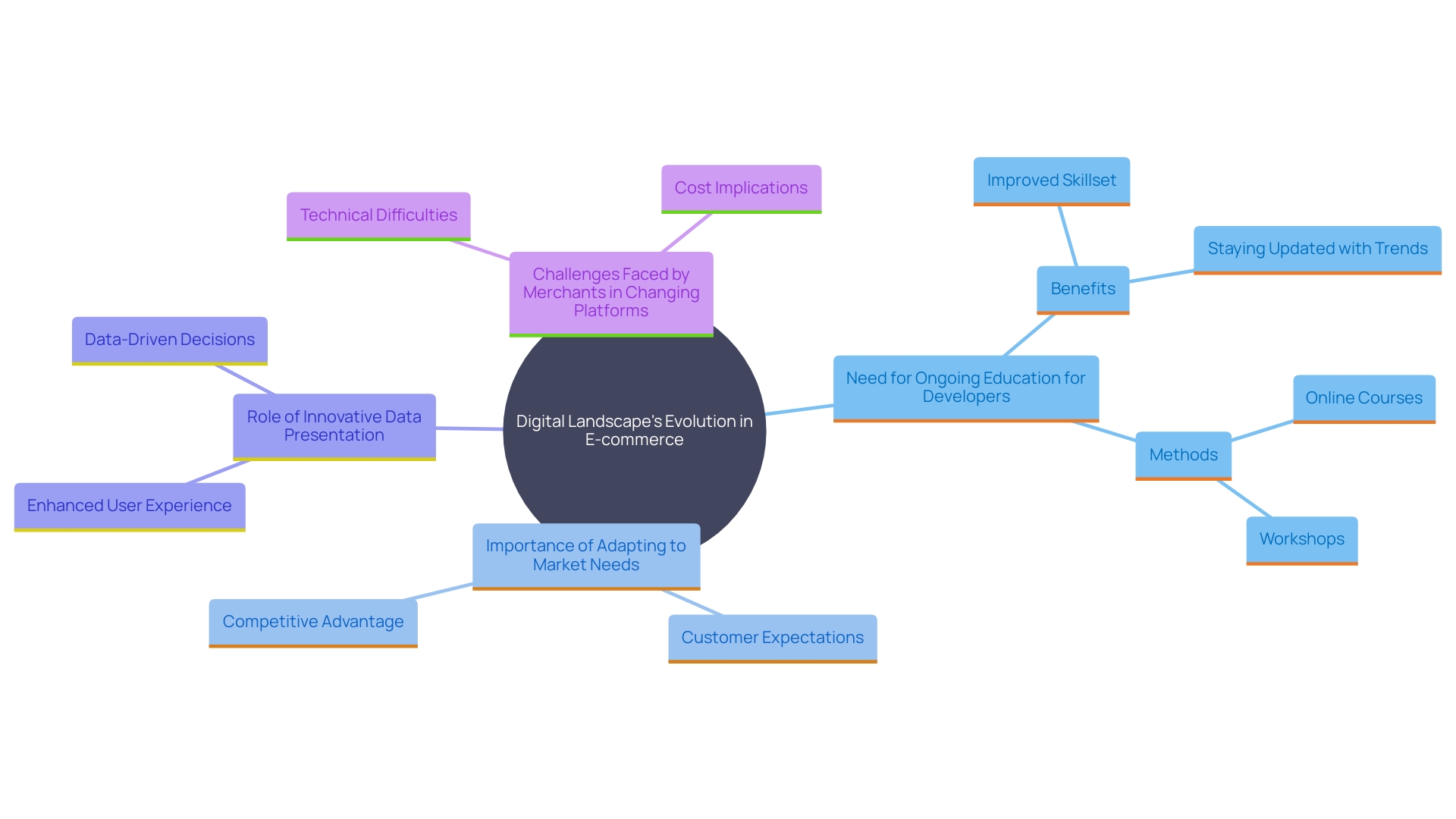
Steps to Hire a Shopware Developer
To recruit a developer, start by clearly outlining your needs and budget. Specify the scope of work based on your product roadmap and business objectives, ensuring that the responsibilities and role are well-defined. For example, if your project involves developing a web application, you might need someone proficient in both front-end and back-end development.
Next, create a detailed job listing on relevant platforms, highlighting your specific needs such as experience with Shopware APIs, understanding of e-commerce best practices, and the ability to manage multiple stakeholders. Emphasize the importance of communication skills and problem-solving abilities in your listing to attract top talent.
When screening candidates, evaluate their portfolios and certifications to assess their specialized skills. Search for developers who can showcase expertise in technologies pertinent to your work, such as JavaScript, HTML, CSS, and other Shopware-specific tools. Additionally, assess their ability to think outside the box and solve complex technical problems efficiently.
Conduct thorough interviews to assess each candidate's suitability for your initiative. During the interviews, pose questions about their previous work, the specific technologies they utilized, and the challenges they overcame. This will help you understand their problem-solving approach and their ability to integrate into your team.
Ultimately, select an individual who not only fulfills your technical requirements but also shows a clear comprehension of your objectives and a sincere enthusiasm for your project. By fostering a positive and collaborative work environment, you can ensure that the developer will contribute significantly to the success of your e-commerce platform.
Conclusion
In the competitive realm of digital commerce, selecting the right e-commerce platform and developer is pivotal for success. Shopware’s robust, open-source architecture offers unparalleled flexibility and scalability, making it a prime choice for businesses aiming to thrive online. The importance of hiring a skilled Shopware developer cannot be overstated; their expertise is essential in unlocking the platform's full potential, optimizing performance, and creating a seamless user experience that can significantly enhance customer engagement and conversion rates.
When considering a Shopware developer, several key factors must be meticulously evaluated. Technical proficiency, familiarity with project management tools, and a solid portfolio are fundamental indicators of a developer's capability. However, soft skills such as communication, adaptability, and problem-solving are equally crucial, as they facilitate collaboration and ensure that project goals are met effectively.
Furthermore, the developer's commitment to continuous learning and adaptability in a rapidly evolving digital landscape is essential for maintaining a competitive edge.
Ultimately, a strategic approach to hiring a Shopware developer will not only enhance the functionality of an e-commerce site but also align technical solutions with business objectives. By thoroughly assessing candidates based on these criteria, businesses can forge partnerships that drive long-term growth and value, ensuring their online presence remains robust and responsive to market demands. Investing in the right talent is not just a technical decision; it is a strategic imperative that can significantly influence a business's trajectory in the digital marketplace.





